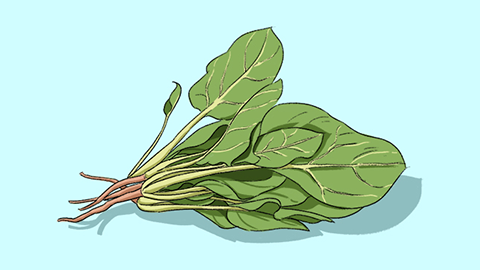Which Five Vegetables Should Not Be Eaten with High Uric Acid?
Generally speaking, there is no such thing as vegetables that people with high uric acid levels cannot eat. However, individuals with elevated uric acid should usually pay attention to controlling their intake of vegetables such as spinach, asparagus, laver, mushrooms, and bean sprouts. If in doubt, it is recommended to seek medical advice in advance. Detailed analysis is as follows:

1. Spinach: Spinach contains a relatively high amount of oxalic acid, which can affect uric acid excretion. Excessive consumption may lead to accumulation of uric acid in the body, worsening hyperuricemia, so moderate consumption is advised.
2. Asparagus: Asparagus is considered a vegetable with a moderate purine content. Purines are metabolized into uric acid in the body, and excessive intake may elevate blood uric acid levels. Consumption should be reduced, especially when uric acid control is poor.
3. Laver: Laver has a relatively high purine content and belongs to the category of seaweed. Excessive consumption may increase uric acid production, which is unfavorable for maintaining stable uric acid levels, so intake should be controlled.
4. Mushrooms: The purine content of mushrooms is higher than that of most vegetables. Particularly dried mushrooms have a concentrated purine content. Excessive consumption by individuals with high uric acid levels may increase metabolic burden and affect uric acid excretion.
5. Bean sprouts: Bean sprouts have relatively high purine levels during the sprouting process, especially yellow bean sprouts. Overconsumption may increase uric acid production in the body, adversely affecting uric acid control, so moderate intake is recommended.
When consuming vegetables, individuals with high uric acid levels should pay attention to variety and portion control. These vegetables are not completely forbidden, but excessive intake should be avoided. In daily life, low-purine vegetables such as wax gourd, cucumber, and cabbage can be consumed more frequently. Additionally, drinking plenty of water and engaging in regular physical activity can help manage uric acid levels.









